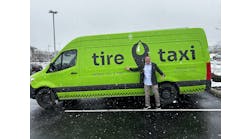Every adult is now born in the 1990s, and everyone born in 2000s is a minor. Interesting facts, but what business purpose does it hold? None. And don’t let anyone tell you otherwise.
Don’t get me wrong, this isn’t a lecture. It’s a call to action. Gen Y, or the now more commonly named millennials (even though technically there is a distinction), are the most over-studied, over-analyzed, and misdiagnosed generation of this country.
First, as children, they were labeled and put into a box, before even experiencing puberty. Then they were called the most privileged. World is their oyster. Save the planet. Then 9/11 happened, and as kids, their whole world view was challenged. Then a recession. Some have parents that are still married, some divorced. A lot of their friends have died or been injured in overseas wars. And most importantly, they’ve grown up. There’s a lot of things you can call millennials, but summing them up in one category is not in the cards.
There are a lot of books out there that state, “You should do this with millennials,” or, “Here’s how to win over the hearts of Gen Y.” It usually centers around the notion of gaining experience, being kept in the communication loop, feeling valued, and having a purpose coming to work. Sound familiar? That’s because we all seek those things. It’s not generational as much as it is part of growing up. Doesn’t everyone want a boss who says “good job” once in a while and occasionally have the opportunity to get promoted? Doesn’t everyone dread the “dead-end job” that sucks the life out of you where you count the number of exits on the highway in the morning?
So why do people have these polarizing views on millennials? Why does one employer view them as privileged “trophy for everyone” types? Why does another think there are no good employees willing to work hard? I offer this: The talent pool isn’t at fault, the business is. If you are getting no-good, awful, worthless, “lazy” job applicants, that indicates no one wants to work for you. It isn’t the fault of 88 million teenagers and young adults.
The kids pre-9/11 have evolved. Grown up. As a matter of fact, so have I since then as I imagine you have, as well. My views have changed, my values, my priorities. I’ve been an adult for a few decades now, and I’m different now than I was when I turned 21.
Has your business changed much in the last 10 years? Societal expectations have changed. Customers (all of them) expect clean shops, courteous service, and transparent transactions. They turn to the internet first to check out a company. Employees (all of them) expect to be treated with dignity, work in a safe place, have some flexibility built into work, and earn a decent living. Maybe 20 years ago you could get away with doing something different, but it’s not “the kids these days.” It’s societal expectations.
Yes, there are fewer kids these days interested in an auto mechanical career. Which means there is a shallower talent pool. That’s our problem, though. We need to professionalize this industry. Professionals are defined by technical or ethical standards. They operate in a business-like manner at all times. They conduct and participate often in continuous learning to stay up-to-date on new technologies and best practices. Professionals make sure their business is attractive to top talent and do the things necessary to make that happen. These are things we need to do to make sure a young, energized, and ambitious mechanically inclined young adult ends up working on cars. We need to make sure they have a bright future and aren’t in some cubicle punching code wishing they could be challenged more.
If you are wondering what happened to the work ethic of the youth of America, I urge you to look around and see what message you are presenting to potential employees. Due to the boom of the internet, social media, and web 2.0 you are competing for the talents with every single other employer out there regardless of industry. The fashion industry is competing with manufacturing which is competing with the automotive and so on. We are reaching younger and younger to find that talent and develop it.
If a big box employer has a slicker ad or an intern program for college kids, then an independent shop needs to counter with an after-school program for high school kids. If a national company is luring young adults out of the neighborhood and state, then local businesses need to figure out how to work together and send a message that experience in a local shop is invaluable on the way to owning your own business.
If you’re waiting around for good employees to find you, or you are using old tactics to find them, you’re going to have very negative stereotypes of today’s youth.
Dennis McCarron is executive director of Dealer Strategic Planning Inc., a company that manages multiple tire dealer 20 Groups in the U.S. (www.dsp-20group.com). To contact McCarron, email him at [email protected].

